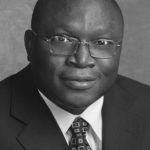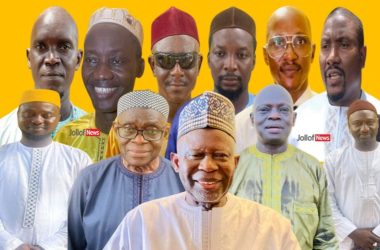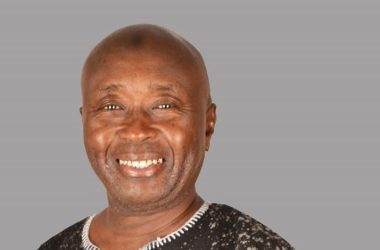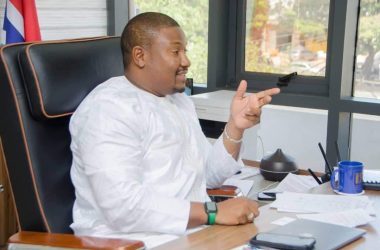
Making Gambia a functioning institutional democracy was (and remained) the main goal of our 22-year struggle against tyranny perpetrated in our homeland by Yahya AJJ Jammeh and his henchmen/women. Many joined the struggle not for our hatred of Yahya and/or our love to have anyone of you as president. We endeavored with blood, sweat, tears and fortunes to oust Yahya so that we can begin to work to realize that ultimate goal. That necessitates our collective efforts into The Coalition 2016 of which you were the flagbearer in 2016.
To achieve this goal will undoubtedly require a new constitution. The need for such new constitution is not in question. However, it matters how we produce such new constitution and what are in that constitution. Failing in any or both of those 2 (the how & the what) will make you (or us) no better than your predecessor – Yahya and his cohorts.
In a Democratic Republic (like ours supposed to be) people are the owners of state and hence the bearers of all powers of state. This fact is stated at section 2 of chapter 1 of 1997 Constitution: “The Sovereignty of The Gambia resides in the people of The Gambia from whom all organs of government derive their authority and in whose name and for whose welfare and prosperity the powers of government are to be exercised in accordance with this Constitution”
They (the people) are also the government but for practical reasons delegate these responsibilities to representatives/agents such as yourself. Important to state that such delegation, explicitly and/or implicitly did not surrender all powers to those representatives/agents – hence limited-government. Suffice to say the limit of our government is within the 4-corners of the constitution and nothing more. Anything outside remains with the people of the Gambia – the sovereign (the owners).
Gambia’s constitution has lots of issues and we hope to discuss them with all stakeholders at the appropriate times. Fundamentally though from both constitutional and democratic stand point The Constitution of The Gambia is The People’s Governing Contract to their government. Important to reiterate that The Constitution is not Government’s rules on to The People how they will govern (or rule) us. Understanding these distinctions and appreciating them are key to making the right rectifications in the right ways. Failure will likely result to repeating the same wrongs/errors of the past.
Understanding the residence of the constitution and limitations of government should inform you that neither the National Assembly nor The President has any lawful authority to discard the 1997 Constitution. Surprisingly, people of law like some members of your CRC did not seem recognize such a basic issue and/or you didn’t heed their advice. Or are you like me who still to-date question the legality/constitutionality of the 1997 Constitution?
Notwithstanding the central promise of our struggle was to do the right-things in the right-ways. Neither you nor the National Assembly has any legal authority to discard 1997 Constitution. The National Assembly Act that authorize the formation of CRC is unconstitutional. If the National Assembly can enact a law to discard the existing constitution what would be the point of having a constitution. Be reminded what it means – Limited Government. Be reminded powers not given to government by the constitution (explicit/implicit) remain with the people. This is one such power not given to the government – only The People of The Gambia can discard one constitution for another at their times of chosen. At this point the only remaining question is how can the people write their constitution. Democracy has the answer.
The National Assembly Act that authorize the CRC process is illegitimate. It’s unconstitutional. It is undemocratic. The 1997 Constitution although came through another illegitimate source and process is the law that establish your ascension to the presidency of Gambia. In addition, it is that constitution you argued against the demand to step aside after 3 years as per Coalition 2016 Agreement. Whatever the reasons might be with the 1997 Constitution only the people can replace it. Parading few at CRC meeting and/or flashing their faces on GRTS during CRC sessions is too hypocritical and little to meet the high demand of people’s constitution.
Furthermore, the exercise was supposed to write, structure and frame our nation for a functioning democratic governance. Instead the draft on the table is basically keep Banjul as is by recasting words, sentences, paragraphs, provisions, chapters, etc. For democratic to work in our homeland 3 key areas has to be total revamp:
1) Discard the imperial Governance infrastructure in Banjul: Banjul need to be right-structured, right-scoped, right-role and right-sized. This will allow the rest of the governing authority and resources down the social, geographic and cultural structures – Regions, Districts, Wards, Villages/towns/cities
2) Build Requisite Civic Capacity for Democracy: Gambia has to quickly develop the civic capacities of her people if we hope to keep an enduring democracy, rule of law and prosperities
3) Maintain unadulterated Basic Social Data: democracy, rule of law, justice and good governance, etc. rely on good information. Among other Gambia would need nationally segregated data on population, death, employment, agricultural production, consumption, education, etc. Accurate and timely information is vital for rule of law, decision-making and justice dispensation
The 1st is a matter for the national constitution to define. The other 2 could come around through Acts of National Assembly.
With the goal being a working (functioning) democracy, one would expect among others some of the following features a new constitution:
i) A Shorter/Slimmer Document: I would guess on ‘12 Roman-Times single space’ anywhere between 50-70 pages is more than enough. This is in contrast to the current 300-350-page documents. There are lots of noises – materials that are no matters for the constitution. Such noisy matters render the constitution unstable often requiring constitutional amendments at every law-making session of National Assembly. Where 50% plus 1 vote in the National Assembly can amend ANY provision of The Constitution is as good as NO constitution. For instance, the constitution shouldn’t say a president shall go on’ meet the people’s tour’ 2-times (or whatever number) in a year.
This should be act of National Assembly. I will not even make it an act – is his/her job to meet the people s/he govern. The chapters on SOEs are matters for National Assembly. Think of it this way. The constitution allows government to commerce with our resources but it doesn’t have to say ‘privatize Telecommunication Department to Gamtel or tax wages for national revenue’. National Assembly will make laws to effect such changes and will be within the commerce clauses of the state.
ii) Limit the Role of The Presidency: The role of the president in a well-functioning democracy in The Gambia shouldn’t more than half-a-page at that font size. Democratic governance is purposefully to share power. Democracy is people government and having one person responsible of everything is by definition autocracy. The President ‘shall’ in almost every page of the entire document is creating a democratic-monarchy. We do this because the authors have the sitting president in mind and not necessarily a functioning democracy. This was true at 1970, true at 1997 and in 2020. Dispersal of governing power all along the social-ladder is fundamental to democracy. We should avoid the creation God-like presidency.
iii) No Authority the National Assembly and President to amend ANY provision(s), words, material in(of) The Constitution. Only The People of the Gambia should change/amend anything from the constitution. Any law changeable between the National Assembly and the president should come as an act of national Assembly. All provisions of the constitution should only be ultimately changeable by the vote of ¾ of registered voters. Such changes can be legally and democratically done in 1 or 2 ways: (1) to have a sun-set clause that states a review of what works (and not work) by the people (2) stakeholders could propose changes, tabled/voted in the National Assembly, signed by president and submitted as a voting question in the following general election. We could also add a grace-period – time it could take for any amendment to come into effects. All of these are to ensure retardation of sinister reasons for demanding changes. And very well calibrated to Term Limit will ensure those doing the changes will not be beneficiaries from such changes while in office.
iv) Decentralized Governance Infrastructure: Recognition of our geography and socio-cultures/tradition in formulating dispersed governance administrative structures in vital to culturing democracy, rule of law and prosperity. In contrast to the existing Local Government arrangements that are mere political-long arms of Banjul the new structures will be fully functioning with authority to make rules for their areas, endeavor identified common welfares needs/wants, legally resolve disputes and levy taxes/fees/royalties on good and services within their geographic limits as they see fit. The new structures will be directly answerable to their people and not Banjul.
a) Regional Government
b) District Government
c) Village/Town/City Municipalities
This will not only provide opportunity for effective vertical accountability but also induce horizontal competition that will green-the-pastures for all our citizens regardless of where they choose to live. It will equalize the relationship between our people and productive resources such as land, forests, waters and the overall environment.
v) Separation of Powers: Governments of all levels (Banjul/Central Government, Regional Governments, District Governments and Municipalities) should bear the fundamental democratic features such as Executive (Enforcer of existing rules), Legislature (Rule-makers) and Judiciary (Arbiters). Each Branch should be co-equal to the others and not a subordinate with distinct responsibilities.
vi) Term Limits for ALL Elected Officials: There are good academic arguments against term limit but overall is a very good sanitizer in a democracy. With the politically passive Gambian population term limit will be a great buffer to institutionally protect our people from self-servicing elected public servants. Elected offices in a democracy are supposed to be for impeccable characters of the society to give back and not self-enrichment at the expense to the people.
vii) Decentralized Independent Election Administration: Election is a fundamental democratic instrument that should enables us freely and fairly choose our representatives/agents. Hence an impeccable Electoral Administrative Infrastructure is an absolute necessity. The arrangement under Jawara/1970 Constitution where his politically appointed Divisional Commissioners serving as Elections Returning Officers and/or under Yahya/1997 Constitution with a National Election Commissioner appointed by him (Yahya) are 2-sides of one coin. In both cases the election officials serve at the pleasure of the president. Those presidents were themselves candidates in numerous elections run by such officials. Real (or perceived) this doesn’t pass a democratic fairness test. The new arrangement should be a decentralized election administration where each region and Districts has their own registers and election infrastructure. A skeletal national election office will only serve in supervisory capacity, coordination, recordkeeping and tallying everything election from the regions and districts. Officials of such national body should also be elected on limited-terms and not appointed by the president or some other stakeholder. Political parties can hold a permanent seat in this body.
viii) Maintenance of National Social Data Registers: Our constitution should mandate maintenance of an unadulterated national register on population – living and dead. The rest of the social data could come under Act(s) of National Assembly. Specified periodic national population census should be constitutionally mandated.
ix) Independent Judiciary and Impartial Justice Systems: Democracy ought to be laws and not men. Such cannot be achieved without independent judiciary and well-structured justice administration systems. The Structure, role and size of the supreme court should change. More importantly the jurors to that court should be appointed either on term-limit and/or life and by an independent process among people’s representatives. No more presidential appointing and firing of jurors of supreme court of The Gambia – it taints its independence. There could be 2 or 3 Appeals Court below the supreme court at national level. Below that justice administration will be regionalized hence sets of regional courts that flush into the national courts in dispensing justice. The jurors of Regional/District courts can be directly elected by the people and/or appointed by a well-defined process among people’s regional agents. They should also be on term-limit. Municipalities can have local dispute resolution infrastructure, religious courts, etc. as fitting to them so long it doesn’t contravene the constitution. Impeachment by people’s representatives should be the removal method of unethical jurors and those found violating our laws.
x) Re-Anchor Our Rights: Our rights come in 2 broad categories – God given rights and others are humanly recognized by UN. Government cannot take away God given rights. There may be occasions some of the humanly recognized rights could be taken or changed but only temporarily. Such could be in the event of emergencies – natural and/or manmade. However, we should endeavor to numerate such emergencies to reduce ambiguity. In addition, the processes of declaring emergencies should be a rigorous democratic process to minimize abuses. The president may also be given limited authority to declare emergencies unilaterally to contain certain fast-moving emergencies but only on temporary basis – probably never more than a month – to seize or be extended by one put through the rigor of democracy.
Sadly, the current draft on the table is neither a product of minimum required democratic process nor does it advance democracy. It’s actually a sequel of the 1997 Constitution except this time the authors have you (Adama Barrow) in mind and not Yahya. This is unacceptable! Let not be fool by the smile of few override the truth in your heart. Both of your predecessors created similar predicament but fortunately live to tell they’ve overstayed their welcome. You’re essentially repeating the same doomed history.
On January 19, 2017 you took The Oath of Office of The President of The Gambia to uphold and defend the constitution. Discarding that constitution and replace with one written by your handpicked men/women is not only outside your lawful authority but also a mockery of our struggling-democracy. Our people entered this era with the highest of spirits and hopes matched only to days before February 18, 1965, that we will finally secure democracy hence true freedom and prosperity. Instead, just like your predecessors you equate democracy to Barrow (Democracy = Barrow). Rather than what puts Gambians in-charge of their own affairs, what makes Gambian freer and what makes them prosperous – you’re systematically putting together the building blocks for what can keep you in office for as long as possible. This is not a new game – both Jawara and Yahya did the same.
I write to you as a concern citizen for the future of our homeland. I ask you to dissolve the illegitimate processes of writing your own constitution. In fact, your approach will make a precedence for every President after you to write one that perpetuate his/her tenure. Mr. President we can do this as a nation and for the nation. Last I will betray my conscience to not mention your abandonment of the 3-year ‘Democratic Reforms’ agreed to by The Coalition 2016 to be apparently replaced with your National Development Plan. It’s being 3 years and counting since you took office and not a single meaningful democratic reform is registered. Such an abysmal failure has mammoth consequences not only for our people but yourself, your children and their children. Even if you don’t care about us and our children, I want to believe you love your children to leave them such a politically volatile and an unpredictable nation. We lost valuable 3 years but we can make up our losses before it’s too late.
Finally, my free service to Gambia at my cost is readily available – whenever & wherever you ready for democracy.
For The Gambia Ever True
God Bless Gambia.




